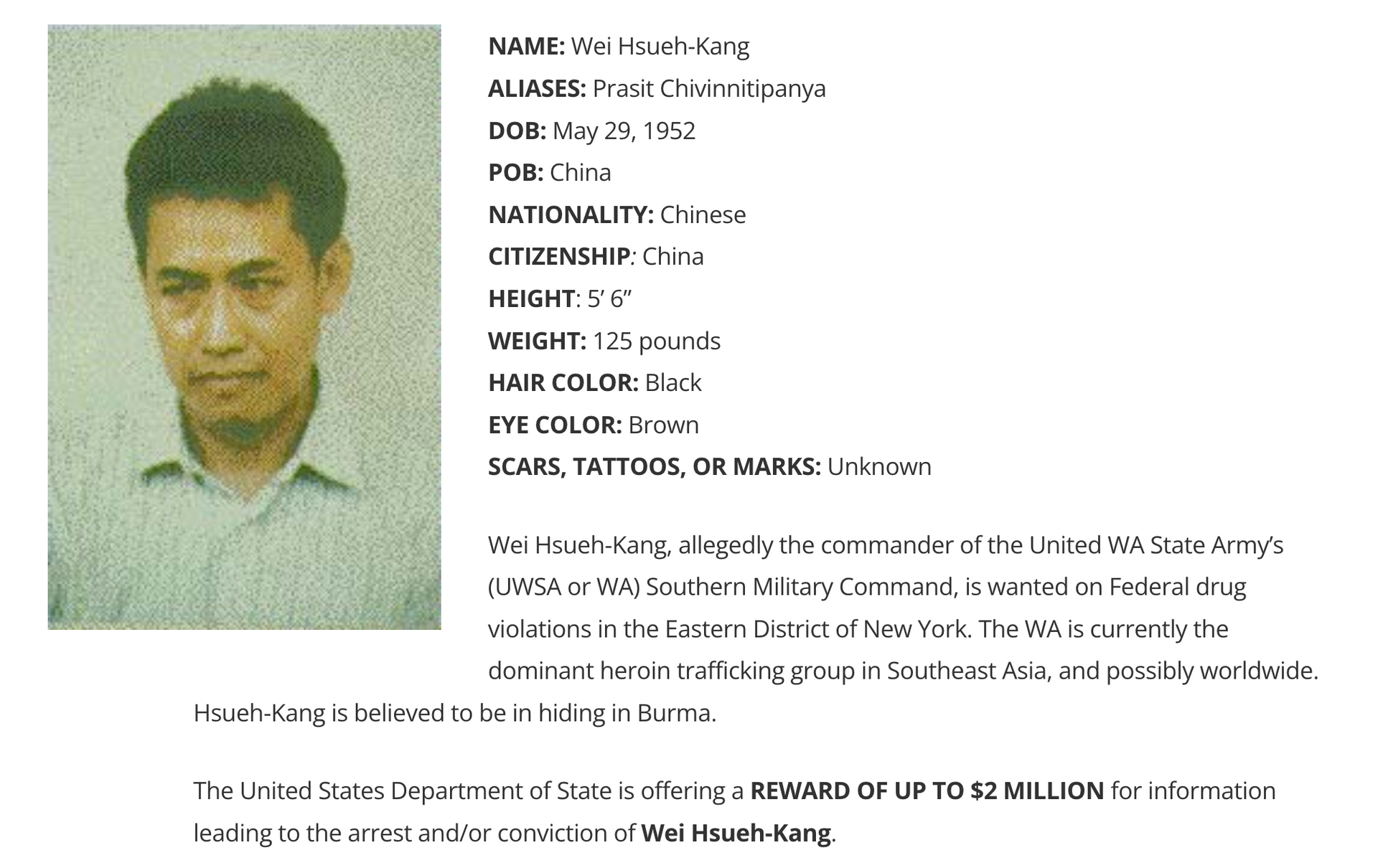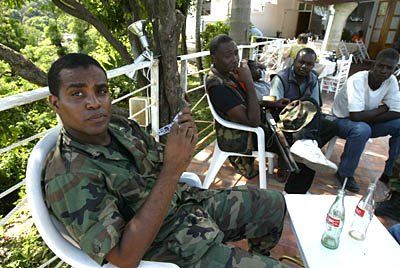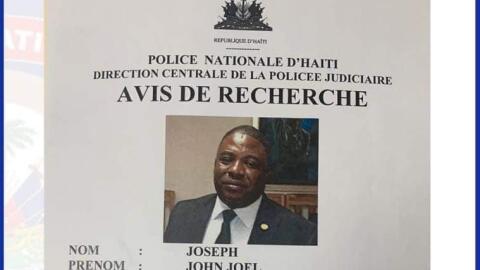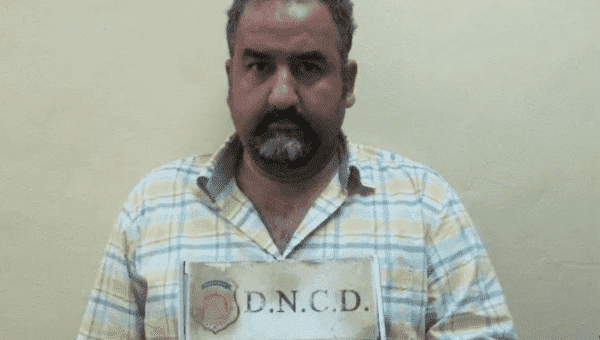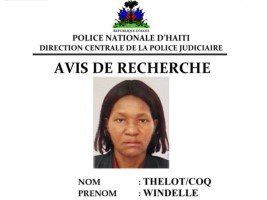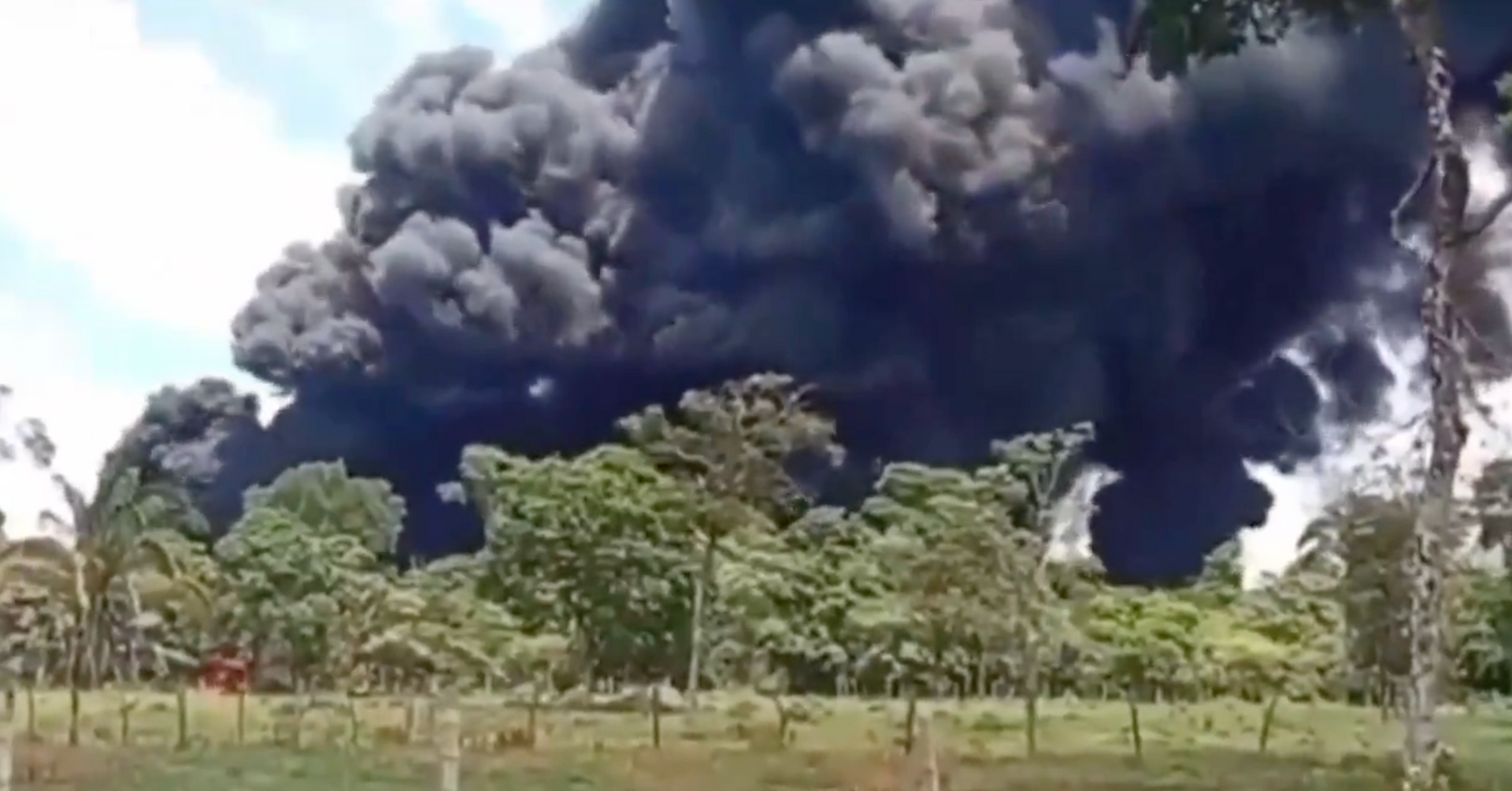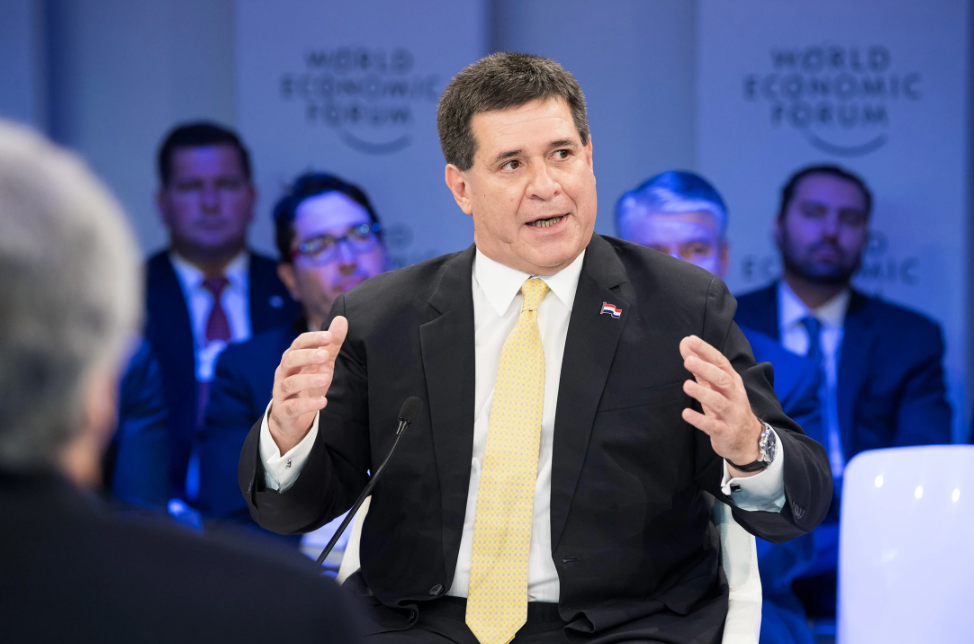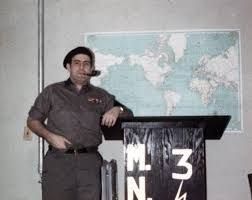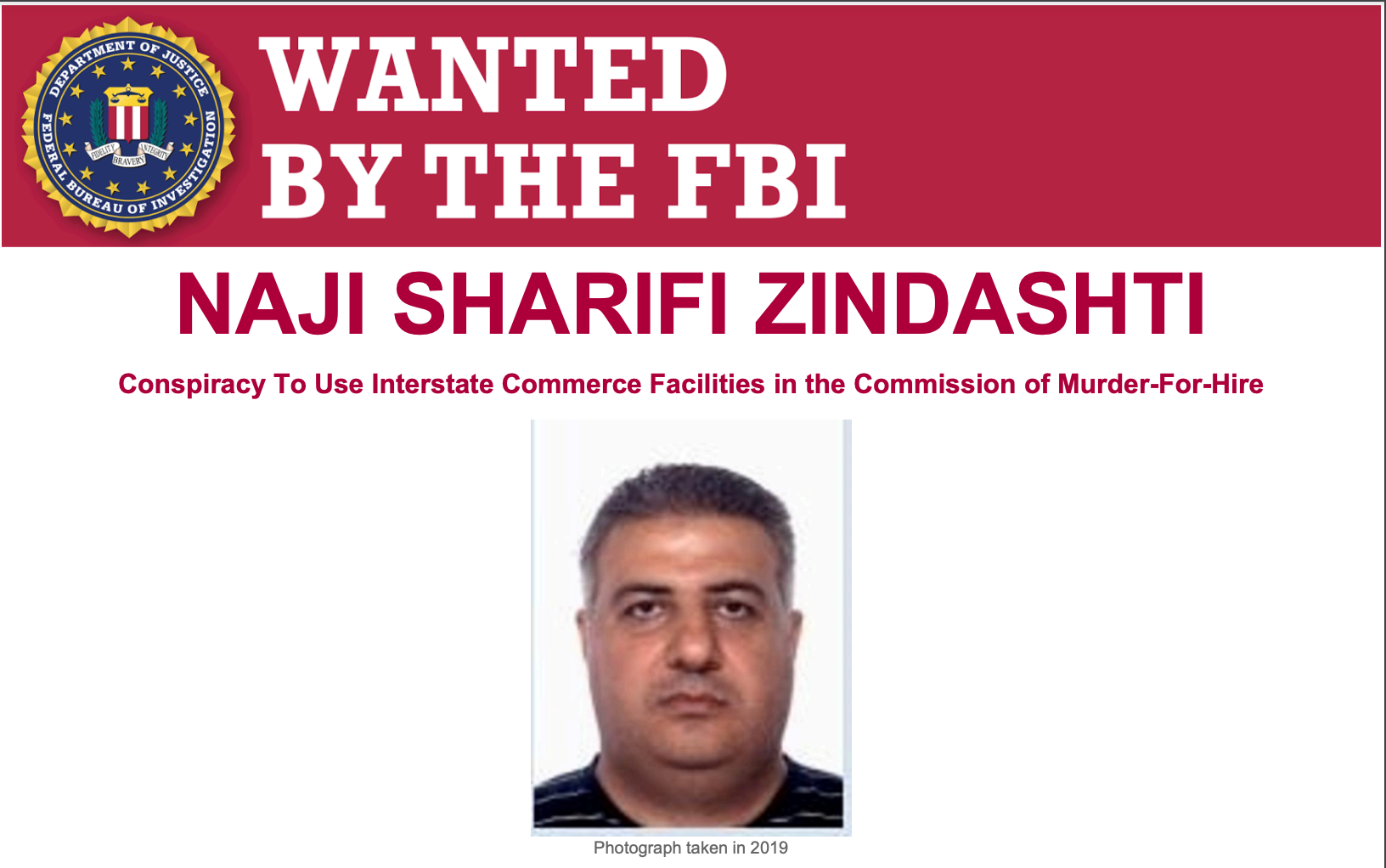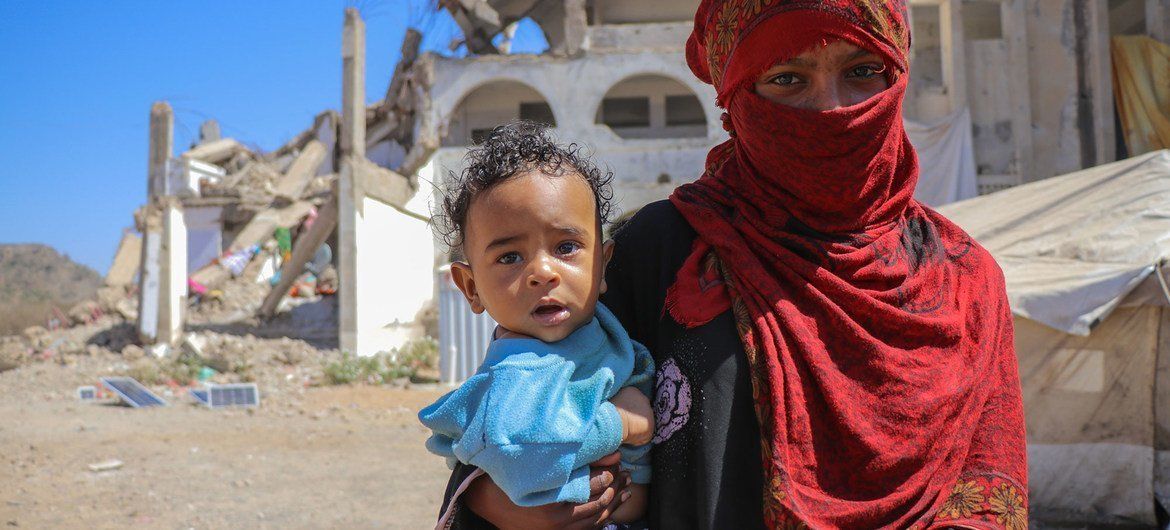Suspects for Haitian Leader's Assassination Don't Belong in a U.S. Courtroom (Part I)
January 30, 2022
A Deep Look at the Assassination of Haiti's President and the Links to the U.S. Government
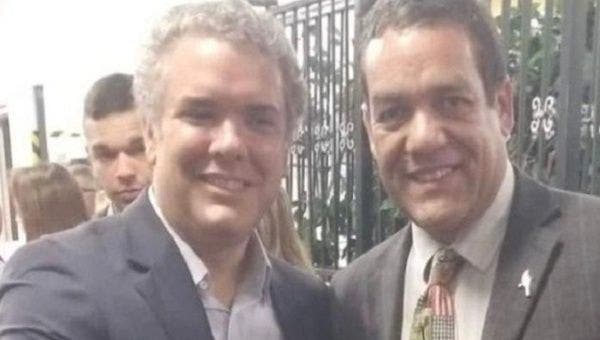
Colombian President Iván Duque (left) and Antonio Intriago (right) - Twitter @calimanarawak
If you’re not familiar with that event, an aid concert doesn’t seem like anything nefarious. However, NPR explained that the Red Cross and the UN refused to collaborate with this aid because it was “also designed to foment regime change in Venezuela.” A government agency audit later revealed that USAID’s efforts weren’t in line with humanitarian purposes. Instead, USAID pushed their officials to make decisions to boost Venezuela’s opposition leader, Juan Guaido. In fact, a large portion of the money ended up being embezzled by Guaido’s cronies.
The 2019 Venezuela Live Aid concert was a brilliant propaganda stunt. To the casual observer, Maduro appeared to be cruel by refusing to accept humanitarian aid from the U.S. government during a hunger crisis. Two months later, Guaido organized an attempted overthrow of the government, Operation Freedom. The head of Venezuela’s intelligence organization, Manuel Cristopher Figuera, was also a key conspirator in this unsuccessful coup attempt. He and his family now live freely in the U.S. He told The Washington Post that U.S. government officials tried to incentivize the coup by offering to return his property in the U.S that had been confiscated as part of the U.S. Treasury’s sanctions program.
One year later, the Venezuelan military easily warded off another attempted coup, “Operation Gideon,” which the media dubbed the “Bay of Piglets.” There was no connection to Arcángel Pretel nor Antonio Intriago, but it illustrates a pattern in which the U.S. government harbors the aggressors who attempt to overthrow a foreign government. In this instance, Juan Guaido contracted with another Florida-based company, Silvercorp USA INC, which provided
security for the Venezuela Live Aid concert. Silvercorp’s CEO, Jordan Goudreau, a former Green Beret, has publicly
stated that the mission intended to capture Maduro and he has never faced charges in the U.S.
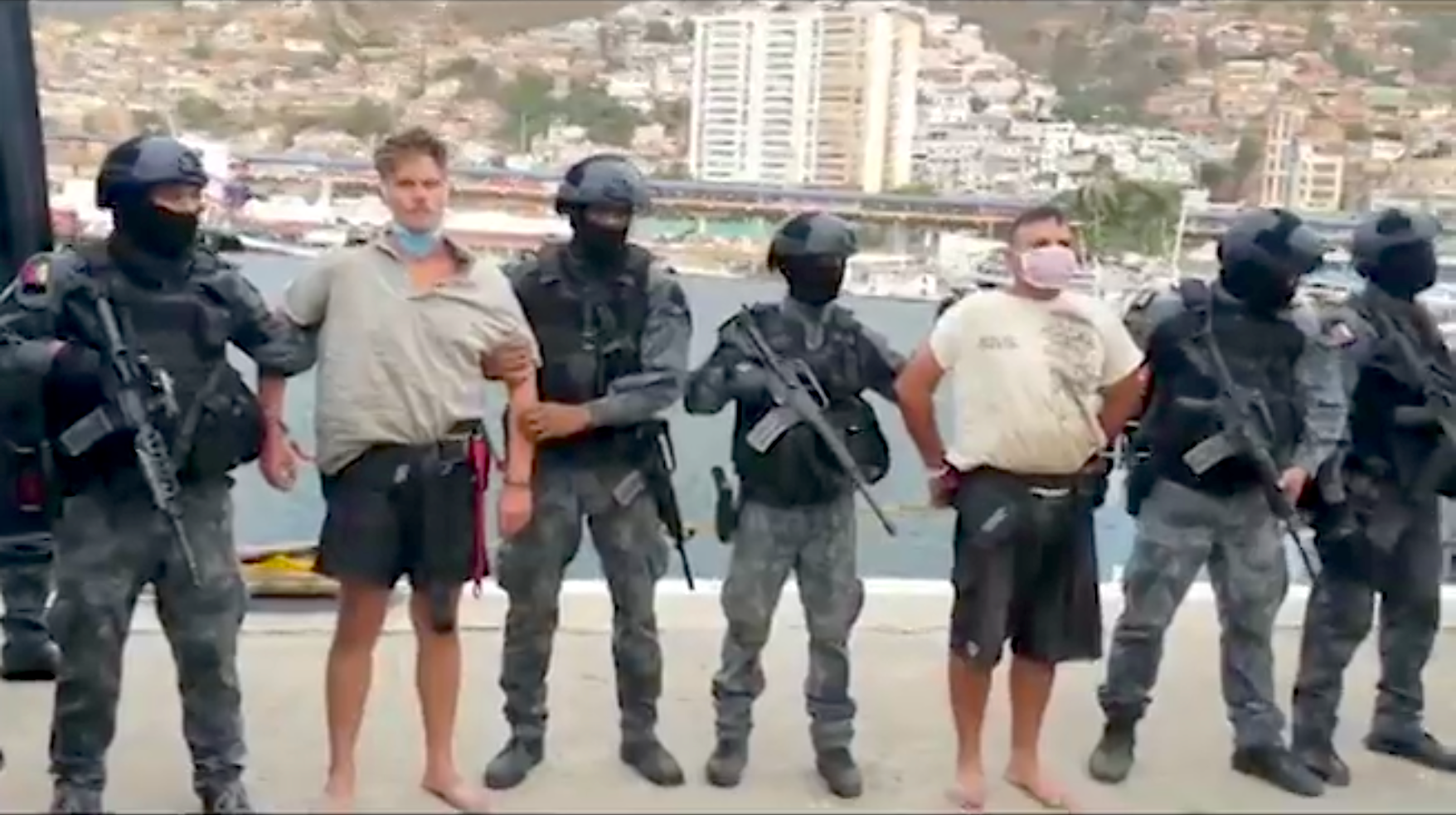
Former U.S. soldiers captured in Operation Gideon - Prensa Presidencial - Government of Venezuela
On a similar note, a former Venezuelan General, Cliver Alcalá-Cordones, who publicly acknowledged his role in organizing Operation Gideon within the jungles of Colombia, is facing charges in the Southern District of New York, but not for attempting to assassinate Maduro. Alcalá was part of a 14-person indictment, including Maduro and other Venezuelan officials, as part of a narco-trafficking conspiracy. Last week, his attorneys stated that officials at the CIA, among other agencies, were aware of Operation Gideon. Alcalá’s attorneys provide an interesting legal argument. They’re essentially saying that Alcalá wasn’t part of a drug trafficking conspiracy involving the Maduro government because he was part of a conspiracy to assassinate Maduro that the U.S. government was privy to.
Anyhow, back to Arcángel Pretel and Antonio Intriago. The Bolivian government also accused both men of plotting a coup in their country. They entered Bolivia a few days before the 2020 election and stayed blocks away from the presidential inauguration. They were joined by a former Colombian Military Colonel, Germán Alejandro Rivera Garcia, aka “Colonel Mike,” who was one of the assassins of Haiti’s President Moïse. Ultimately, a coup didn’t take place in Bolivia in October 2020. The prevailing theory is that there wasn’t enough support among Bolivia’s military coup plotters because the leftist Luis Arce won by too wide of a margin.
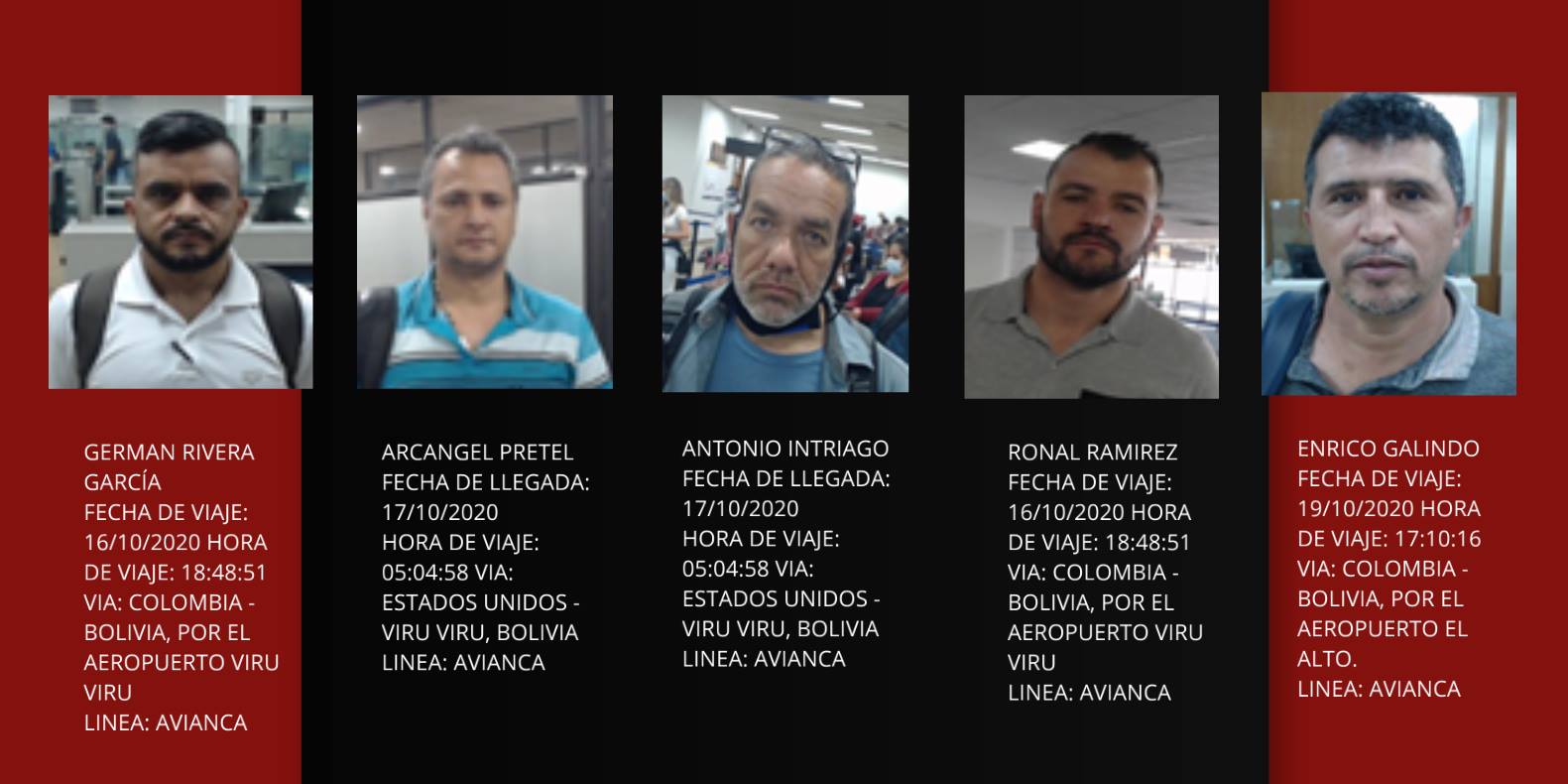
German Rivera Garcia, Arcangel Pretel, and Antonio Intriago - Bolivia Government Minister
Arcángel Pretel and Antonio Intriago later contacted Colonel Mike for the preliminary steps of the Haiti plot. Colonel Mike couldn’t travel to the U.S. for a meeting because he didn’t have a U.S. visa. However, his brother, Jhonatan Rivera Garcia, was living in Miami working as a restaurant server; he acted as a liaison. The first meeting took place on Valentine’s Day 2021.
Two months later, Jhonatan Rivera Garcia traveled to Port-au-Prince, Haiti with James Solages, a former US Marine of Haitian descent who worked security for the Canadian embassy in Port-au-Prince. Solages was one of the men captured at the site of the assassination. According to Jhonatan Rivera Garcia, they were told that the original plan was to provide security for a Haitian-born, Florida-based preacher, Christian Emmanuel Sanon, who was supposed to take over Haiti.
James Solages has since claimed that he was merely an interpreter for a U.S. government-approved operation to arrest, not assassinate, Moïse. The pretext for this mission was that CTU Security LLC’s contractors were supposed to serve an arrest warrant issued in February 2019 for President Moïse concerning a massacre in the La Saline community of Port-au-Prince.
In April 2021, Solages met with agents of the Haitian National Police (PNH) and he claimed to be a representative of the U.S. Justice Department, according to a report by a Haitian NGO, the National Network for the Defense of Human Rights (RNDDH). Vincent Joseph, another U.S. citizen who was captured at the scene of the assassination, was also at that meeting. Vincent told the PNH that he was a CIA agent.
There’s no evidence that Vincent worked for the CIA, but DEA sources have confirmed that he worked for their agency as a confidential informant for several years. He reportedly helped the DEA capture Guy Philippe, a former Haitian paramilitary leader who led the 2004 coup, just days before Philippe was about to be inducted into the Haitian Senate and gain immunity from criminal charges.
Meanwhile back in Florida, the Haitian American preacher, Christian Emmanuel Sanon, led a meeting on May 12th at the Tower Club in Fort Lauderdale. He claimed that he wanted to rebuild Haiti’s infrastructure and turn it “into a free and open society” while never mentioning an overthrow of the government. Several in the media labeled Sanon as the “mastermind” of the assassination, but that seems unlikely. There should have been more attention paid to the people who financed him.
The Washington Post published records that two companies would provide Sanon with over $865,000 in loans. A quarter of those funds would come from Arcángel Pretel and Antonio Intriago via CTU Security LLC. The remainder would come from Worldwide Capital Lending Group, owned by a South Florida businessman, Walter Veintemilla, from Ecuador. According to their contract, Sanon was supposed to repay them from Haiti’s assets.
That same group, Arcángel Pretel, Antonio Intriago, Walter Veintemilla, Christian Emmanuel Sanon, were seen flying one month later on a private jet to the Dominican Republic with the tail number HI949. According to Haitian authorities, this group met in a hotel in Santo Domingo with Haitian opposition politicians, former Sen. John Joël Joseph and Marky Kessa (Mayor of Jacmel).
Venezuela’s Ambassador to the U.N., Samuel Moncada, pointed out that the same aircraft H1949 transported Jovenel Moïse’s wife, Martine Moïse, back to Haiti from the U.S. after she received medical attention from the wounds inflicted by her husband’s assassins. That same aircraft also transported Juan Guaido to peace negotiations with the Venezuelan government in September 2019.
While in the Dominican Republic, CTU Security LLC paid 19 Colombians with military backgrounds (several with U.S. training experience), to travel to hear their sales pitch. There’s reason to believe the version of the events from this group. They claim that they only agreed to “provide security to personalities from Haiti, and to the future President, Christian Emanuel Sanon,” not assassinate the President. These men were paid roughly $2,700 per month. They also shared the images of themselves in CTU uniforms and at various locations throughout the Dominican Republic. Criminals often make dumb mistakes, but such decisions seem unlikely if you know that you’re about to assassinate a head-of-state.
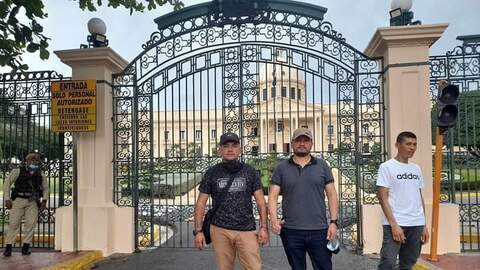
Assassination suspects posing in front of the National Palace in the Dominican Republic - Facebook- Manuel Antonio Grosso Guarín
The group of Colombians then traveled in early June to Sanon’s residence in Haiti and provided him with a security detail. However, two of them abandoned the mission, including Colonel Mike’s brother Jhonotan, in late June when the true nature of the operation escalated quickly. According to Colonel Mike, Arcángel Pretel shifted the mission from protecting Sanon to arresting President Moïse. They were told that there would be suitcases with $45 million in his home and that the group would keep $18 million for themselves. And Arcángel Pretel assured Colonel Mike that the mission was sanctioned by the U.S. government. He had sent Colonel Mike images of himself entering various U.S. government agencies.
The eventual order to kill President Moïse came from another DEA informant, Joseph Felix Badio. Anyone who backed out would be killed. He had worked in the Haitian Justice Ministry anti-corruption unit until May 2021 when he was fired. Badio was an instrumental figure in this assassination. He rented an apartment in front of Moïse’s home to monitor the operation and provided the assassins with the vehicles and weapons.

Joseph Felix Badio - Haiti National Police
The group also abandoned its loyalty to Christian Emanuel Sanon in the final days before the assassination. That suggests that he was merely a “useful idiot” who was duped into this scheme for those with much better means and motives to assassinate Moïse.
A former judge, Wendelle Coq Thélot, was the new chosen successor. Wendelle Coq Thélot held meetings in her home with DEA informants, Joseph Vincent and Joseph Felix Badio, and James Solages, former Sen. John Joël Joseph, along with another DEA informant, Rodolphe Jaar.
Jaar, a dual citizen of Haiti/Chile, wasn’t some nickel bag dealer. He comes from a wealthy Haitian family that is a distributor for Coca-Cola and is a known acquaintance of former President Michel Martelly. Jaar was indicted in 2013 for distributing seven tons of Colombian cocaine. He agreed to become an informant after his arrest. He received a remarkably light sentence and returned to Haiti in 2016.
These loose connections with U.S. law enforcement helped to provide this large group of assassins with the veneer of legitimacy when they arrived at the President’s home in the early morning hours of July 7th. They traveled in six vans (each accompanied by three to four Haitian police officers) and entered in four groups. They were provided with DEA badges by a former police commissioner, Gilbert Dragon, who also was one of the U.S.-trained paramilitary leaders who launched the 2004 Haiti coup. (Gilbert Dragon later died in police custody from COVID.)
(left to right) Gilbert Dragon (after 2004 Coup as leader of National Revolutionary Front for the Liberation and Reconstruction of Haiti - Latinamericanstudies.org - former Senator John Joël Joseph, Rodolphe Jaar, and Wendelle Coq Thélot (Haiti National Police)
This group entered the President’s home without much resistance. A few shots were fired, but they easily breached the building. It seems that most, if not all of the 23 guards on duty, reportedly received a combined $100,000 in bribes from Jean Laguel Civil, the Presidential Security Coordinator.
After hearing those shots, President Moïse made two frantic phone calls to Jean Laguel Civil and Dimitri Hérard, the head of the General Security Unit of the National Palace (USGPN). Neither of them came to his aid. Hérard arrived promptly on the scene, but he didn’t come to the rescue. James Solange stated over a megaphone, “Everybody stand down. DEA operation. Everybody back up,” and Hérard reportedly complied.
That was a convenient excuse for Hérard, but records show that he was in constant communication with the assassins before the murder. The National Network for the Defense of Human Rights (RNDDH) alleges that he supplied them with weapons and ammunition. At the time of the assassination, he was under investigation by the U.S. law enforcement agencies for arms trafficking in Haiti. Reportedly, Moïse had relayed to Hérard not to worry about the investigation because the U.S. would drop the matter. Hérard’s company, Tradex Haiti S.A., had received a U.S. State Department contract for distributing riot gear to the Haitian National Police (PNH). Bear in mind, Haiti doesn’t manufacture weapons and the U.S. is the top supplier of arms in Haiti where several politically-motivated massacres have occurred with police complicity.
And with the Presidential security at bay, the assassins felt comfortable enough to stay in the home for approximately 30 minutes. They fired into the President’s bedroom before entering. The First Lady, Martine Moïse, was also shot seven or eight times. Fortunately, she survived by lying motionless pretending to be dead.
According to Martine Moïse, the men first searched for a specific document before killing him. After they found what they were looking for, one of the men made a call to someone outside (presumably Joseph Felix Badio). He gave a physical description of President Moïse and then apparently the order was issued. A former Colombian soldier, specifically Víctor Pineda Cardona, allegedly shot Jovenel Moïse 12 times with a M4 rifle. This version of the events falls in line with a credible theory published by Maria Abi-Habib of The New York Times in which Moïse was murdered because he was compiling a list of Haiti’s powerful elite who had ties to drug trafficking.
As the men made their escape, they expected that Joseph Felix Badio would have the premises secured from Haitian police, but that wasn’t the case. Badio had left the scene of the crime and the Haitian security forces blocked off the roads. They exchanged gunfire with the Haitian security forces. Colonel Mike remained in contact after the assassination with Arcángel Pretel who told them that they would be rescued promptly; that never happened.
Three Colombians were killed in the aftermath. Two of which, Duberney Capador and Mauricio Romero, were found with roughly $50,000 in cash in their possession. The remainder eventually surrendered, other than Mario Antonio Palacios Palacios who managed to escape. The Haitian police displayed these men for the international media.

Mario Antonio Palacios Palacios - Haiti National Police
A legal question remained as to who would take leadership of Haiti. Claude Joseph was the interim Prime Minister. However, Moïse appointed Ariel Henry as the Prime Minister just two days before his death. Both men have ties to CIA cut-out organizations. Claude Joseph was part of the protest movement funded by the National Endowment for Democracy (NED) that supported the 2004 coup. The Washington Post infamously noted that NED is “doing in public what the CIA used to do in private.”
Ariel Henry was an opposition leader of the Democratic Convergence that called for overthrowing former President Aristide and accepted funding from the International Republican Institute. He was part of the “Council of Sages,” a group that held de facto power over the country after the 2004 coup.

Ariel Henry - Wikipedia
The Fox is Guarding the Hen House
Ultimately, it was the international community, not the Haitian people, who chose Ariel Henry. Claude Joseph wanted to keep the position, but the Core Group pressured to have Henry installed on July 20th. That is in part why Daniel Foote, the U.S. special envoy for Haiti, resigned from his post. If you’re not familiar with the Core Group isn’t familiar, it’s likely because it’s not an elected group. The Core Group is comprised of ambassadors from Germany, Brazil, Canada, Spain, the U.S., France, the European Union, along with representatives from the U.N. and the Organization of American States (OAS). This group unofficially organized the early stages of the 2004 Haitian coup and has repeatedly supported anti-democratic practices in Haiti for multiple elections, including the 2010/2011 election of former President Michel Martelly.
With Ariel Henry at the helm, it appears that there will no justice any time soon. Henry had two phone calls with one of the key organizers of the assassination, Joseph Felix Badio, for a total of seven minutes within three hours of the assassination. Ariel Henry claims that can’t recollect what was discussed on that call. The world is supposed to believe that their conversation was just random chit-chat at 3:00 AM on a Wednesday. Joseph Felix Badio also reportedly visited Ariel Henry’s home twice after assassination while being one of the country’s most wanted fugitives.
Furthermore, two months after the assassination, Ariel Henry had the lead prosecutor fired after he asked the judge to charge Henry as a suspect and ban him from leaving the country. Ariel Henry also dissolved the national election commission and postponed indefinitely the elections that were supposed to take place in November.
Ariel Henry is also accused of protecting the opposition Senator John Joël Joseph who played a role in organizing the plot and reportedly paid for the assassins’ rental vehicles in cash. Another suspect, a Haitian Palestinian businessman named Samir Handal who lives in Miami part-time, also received police protection to leave the country. He’s the person who rented his property to Christian Emmanuel Sanon.
However, the handling of the situation with fugitive Mario Antonio Palacios Palacios is arguably the most puzzling. He was one of the Colombian mercenaries who escaped arrest. While he wanted as one of the country’s most wanted fugitives, Palacios gave an interview to the Colombian news organization, Semana. He explained that he found a bilingual American who gave him access to a house before crossing the border to the Dominican Republic and making his way to Jamaica.
Why make the extra trip to Jamaica? Maybe it has to do with extradition treaties? Jamaica does not have a formal extradition treaty with Haiti. Palacios was arrested in Jamaica in October for illegal migration. Jamaica’s deputy prime minister, Dr. Horace Chang, faced public pressure for not handing him over to the Haitian authorities. However, Chang pointed out in December that Palacios couldn’t be extradited to Haiti because he hadn’t been formally charged by Haiti’s government.
Consequently, Palacios is now in U.S. custody and facing murder charges in the Southern District of Florida. Likewise, the DEA informant, Rodolphe Jaar, who helped fund and organize the assassination is facing the same charges in the same courtroom. And it’s likely that the opposition leader, former Sen. John Joël Joseph, will also be extradited to the U.S. A Haitian official told The Sunday Gleaner, “(The) Haitian government wants John Joel Joseph to be extradited to Haiti. But as for now, it is recommended that he goes to the USA than be transferred to Haiti.”
A U.S. courtroom isn’t the appropriate venue for these cases. After all, Jaar gave an interview to The New York Times while in hiding in Haiti. He claimed that he went along with the plan because the plot was supported by the U.S. government. Jaar is far from being a 100% credible source. For example, after his arrest in 2013, he agreed to work as an informant. However, he was caught stealing 50 kilos of cocaine from a drug bust that helped arrange. Nonetheless, if there’s even a semblance of truth to his allegations about the assassination, a U.S. courtroom is the last place that his case belongs. It’s clear that the investigation in Haiti has no teeth, but it doesn’t excuse the U.S. government for violating Haiti’s sovereignty. The United States is hardly an independent arbiter in this matter.
Look at the track record with the U.S.-based suspects. Neither Arcángel Pretel Ortiz, Antonio Intriago, nor Walter Veintemilla have faced any charges. According to Antonio Intriago’s attorneys, the FBI was “aware” of their security operation. In an even more odd circumstance, the FBI searched Pretel’s Miami apartment on July 27th (three weeks after the assassination) and he has since disappeared. Mind you, he is the person who was reportedly on the phone with the assassins after the crime took place.
To sum up, the circumstances surrounding the assassination create more questions than answers. And those questions may never be answered. We know who committed the crime, but we don’t know everyone who facilitated the crime.
There are several U.S. informants tied to the assassination, but we shouldn’t always take the word of a snitch as the gospel. There’s no guarantee that these people acted in compliance with their American handlers. Nonetheless, a U.S. courtroom isn’t the appropriate forum to dig for the truth. With the U.S. judicial system taking the lead in these key prosecutions, it appears on the world stage like the cover-up of a crime.
(This is the first part of the story about the assassination of Jovenel Moïse. The second part will examine possible motives behind the murder and the connection between the U.S. government and Haiti’s drug trafficking.)
